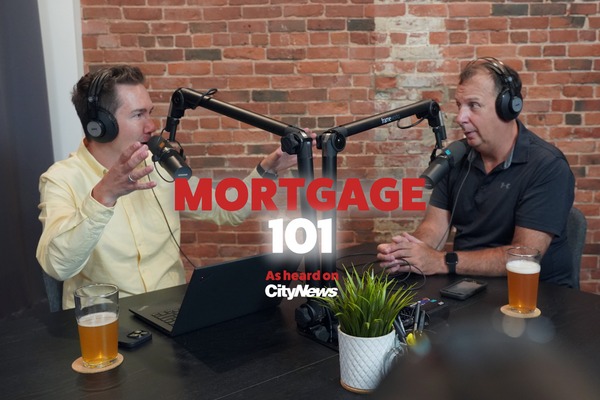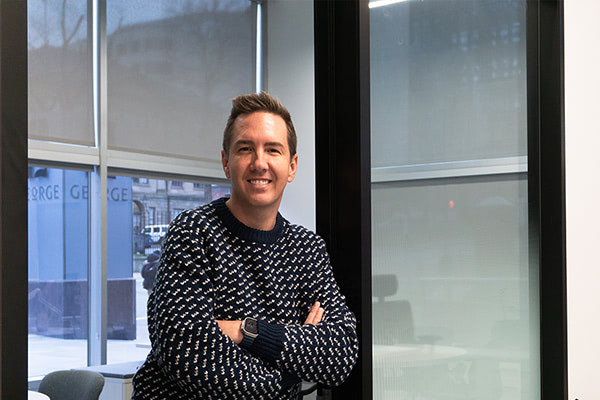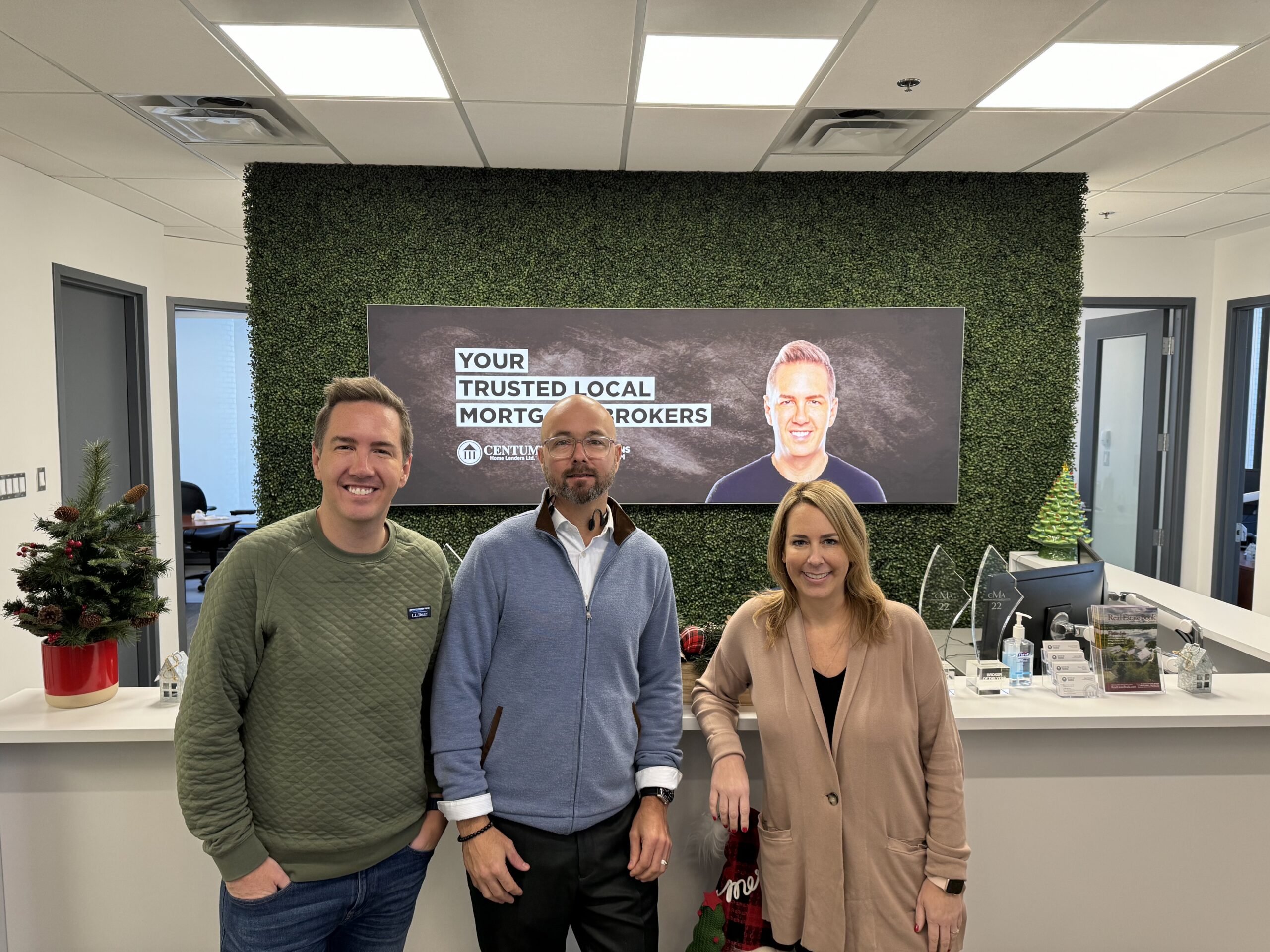The year is almost out. It’s time for our 2023 year in review! Here’s what 2023 looked like, and what to expect in 2024.

Mortgage 101 – Striving For Stability | August 28th
In this edition of Mortgage 101, Clinton Wilkins and Todd Vienotte discuss how homeowners can find stability in today’s market. They chat about the importance of a fallback plan, why owning a home is not for everyone and how homeowners are changing their situation to be more stable.
Todd Veinotte 00:05
We didn’t do this at the start of the show. And I usually do this because we have new listeners all the time. So introduce yourself, Clinton.
Clinton Wilkins 00:10
I’m Clinton Wilkins. I’m a mortgage broker in Halifax. I’ve been in the industry for 17, almost 18 years, right out of university. We funded about $1.4 billion worth of mortgages, and we’ve done over 5000 transactions. I always say I’ve seen everything. But every day I see something new. And the exciting thing is, I actually talk to a lot of our listeners, people see me, and they stopped me and they’re like, Oh, you’re that guy from the radio. And I will give you free mortgage advice, anytime.
Todd Veinotte 00:41
There you go. I like that. Free mortgage advice –
Clinton Wilkins 00:43
I’ll talk about mortgage lending all the time. So it doesn’t bother me, you ask me whatever you want, asked me any time. And we’re really here for the advice piece. And, you know, we love doing the show,
The importance of a fallback plan
Todd Veinotte 00:55
Simple as that. We do love educating people and doing these shows. So this is, this show is pre-recorded, obviously. So this is Tuesday. And just today, Tuesday, it’s the 15th of August for reference, inflation numbers came out and we had some a dip of inflation under 3%. Last month, we’re now back over a 3% I think is 3.3% or something like that. Gasoline, food prices. But housing, food prices up around still around the 9% mark. Things are tough right now, right? For a lot of people.
Clinton Wilkins 01:30
Things are tough. I think fuel housing, and certainly the food inflation have been really taking a bite out of the pocket book of Canadians and certainly people here in Halifax. Before we started our show, one of the producers here in the studio said to me, he’d moved and gone into a new apartment. He’s like, I’m going and I’m paying someone, basically, somebody else’s mortgage. And, you know, and I said to him, I’m like, this is I hear the story more and more and it’s not so much that it’s something that he couldn’t do. It’s just right now, where the prices are and where the rates are, it just becomes prohibitive at some point for some people. And we know in Halifax our average house price is somewhere around $500,000. And we’ve thrown the number before, you know it takes income or household income of about $125,000 plus really, to qualify for a $500,000 home. So it’s tough for a lot of people. And, you know, if you’re a single person, that can be quite prohibitive, and even people in a relationship. You know, homeownership is not for everyone. But I think that if you are going to rent, you know, you need to have another fallback plan, because a lot of us fall back for people. And we, you know, we talked about even like what happens when someone dies, what happens with the estate, often the biggest asset is the home. And you have 25, 30 years to pay down that mortgage, and then you potentially will own this asset free and clear. But if you don’t have the asset to pay down, what potentially is going to be left in the estate. And I’m not saying you know, leave your heirs all kinds of money. Let your last check bounce, I don’t care. But, you know, a lot of people do want to leave something as their legacy. And if you’re not going to own property, then you really need to put the difference away, I think.
Owning a home is a liability
Todd Veinotte 03:26
And I also think that many people need to consider or perhaps I should say not enough people consider the liability of owning a home. It’s a massive liability. You could have, and we talked in the first segment about insurance, but oftentimes things happen in homes, furnaces go out, heat pumps don’t work that might not or no longer be under warranty. Stoves, you could just go on and on with the list of things that can happen, right. You could have shingles blow up your roof, a chimney. So oftentimes, I don’t know that people have, they’re up against it financially, monthly. And really, you need a cushion on a monthly basis, in order to be able to deal with some of these unknowns right?
Clinton Wilkins 04:06
You 100% need a fallback plan? And either that’s cash or credit, or both. And people don’t have enough of a fallback plan. You know, they say you have to have several x your monthly income to fall back on. Several X. Just imagine if you did go through an insurance claim, and you don’t have the insurance coverage and you need to fix your home. Where’s that coming from? It’s either from cash, or it’s from credit, or you don’t do it. And I think in some cases, people are too close to the line right now. Cracks are starting to happen. And I’m seeing people who have very good jobs that are certainly starting to feel the pinch.
Todd Veinotte 04:44
Yeah, it’s true, isn’t it? What about monetizing part of your house? Some people you could potentially look at that with bringing in renters or Airbnb. What’s your advice on that? Because that may sound attractive, but I’m sure that –
Clinton Wilkins 05:01
Some people don’t want to sacrifice Todd. You know, I think there’s two types of people, I think there’s people that will literally do whatever it takes to make it happen, like bootstrap, you know, take rubber bands to make something work. And there’s other people that they think that doing something like that is below them. I’m sorry, like, nothing is below you, if you can’t pay your bills.
Todd Veinotte 05:23
Yeah, that’s right yeah.
Homeowners want stability
Clinton Wilkins 05:24
People will do whatever it takes to really make it happen. But their situation is just not that bad yet, right? So I think there’s two sides of this coin here. It’s how much you make. But it’s also how much you spend. So I think you really need to start balancing that out if there is some hardship. And we’ve certainly had criticism for people that are, you know, in a variable rate. Some people are feeling the pinch. But I also hear it on the flip side of that coin, people that are in a fixed rate that were not prepared, and now they’re coming up for renewal. I have people that make a lot of money that borrowed out their max, when the rates were very, very low, and they have a rude awakening. I’m dealing with people that are used to having money, and now they’re like, we have no money. And it has been a major overnight shift for some of these people. And, you know, everybody’s situation is different. And I think that’s what it’s really important to understand. And I think we have to be very cognizant that not everybody’s having a good time right now. Not everybody is, you know, feeling the love. Not everybody is surviving inflation. And I think sometimes making short term changes, and we talk about this with customers, can make a big, big difference. I’m breaking some customers mortgages in the middle of their term and extending the amortization Todd. I’m doing it right now. I’m taking people some people out of a variable rate, and getting them into a fixed rate, not necessarily because the rate is lower. It is maybe a little bit but not lower, that they’re gonna save money. But they’re doing it because now they want the stability. And they’re willing to pay the same, in some cases more sometimes a little bit less, to have that stability. But that’s not for everyone. And if you want to know what’s popular right now, and I think people always ask me, like, what should I do? I would say the most popular rate product right now is a three year fixed. I would say more than 50% of customers are taking a three year fixed right now. It’s kind of the best balance of a shorter term with the lowest rate. And I’m not saying that’s right for everyone. There’s pros and cons to every type of rate product. But that’s what’s the most popular right now.
Todd Veinotte 07:34
What’s the rate of three years?
Clinton Wilkins 07:36
It depends if it’s high ratio insured, you’re probably below 6%. If it’s conventional, you’re like six and a quarter, six and a half.
Todd Veinotte 07:44
Yeah. For people who are purchasing who aren’t renew or it’s a new purchase for them. Are you seeing a lot of 5% and people going in it with 5%?
Clinton Wilkins 07:53
Buying a new home with 5% down? I would say the most of the people that we’re seeing that are doing a kind of transactions like that right now Todd, are first time homebuyers right. But I’m even seeing still a lot of first time homebuyers that are coming in with sizable down payments, because they need that downpayment to qualify or to be able to afford the home. We’re dealing with a lot of spousal buyouts, I think people, you know, kept it together, maybe over COVID. And we’re seeing a lot of separations right now, more and more separations that I’ve seen in the past. So I think that’s certainly a trend and there certainly not as many purchases going on right now. But we are very busy with refinances and renewals and we’ll certainly talk about that more later in the show.
Todd Veinotte 08:34
Okay, lots to get to again Mortgage 101 your guide to homeownership. We’ll be right back.
Clinton Wilkins 08:48
If you’ve liked what you’ve heard, and you want to learn more, feel free to visit us online at teamclinton.ca


